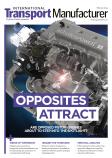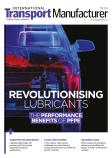Laurence Weir looks at the pros and cons of hydrogen cars and whether we can expect to see them on the road anytime soon
“You won’t see any hydrogen usage in cars,” said Volkswagen’s CEO, Herbert Diess in March 2021. In contrast to its Asian counterparts, Honda, Toyota and Hyundai, nearly all western carmakers have so far shunned the push to develop hydrogen fuel cell electric cars. It may seem they are actively giving up on hydrogen to concentrate on battery power for the next decade at least.
With the phasing out of petrol and diesel road vehicles in a large proportion of developed countries by 2030, the next 10 years will be crucial to settle many aspects of the fuel technology debate. Transportation is vital for society and the economy and makes up a large chunk of the total energy we use – as much as 28% in the US. The ability to de-carbonise this sector is critical. However, the battle of hydrogen vs battery-power will not be a winner takes all competition. Already, hydrogen-fuelled trains are replacing obsolete diesel models in Germany, as opposed to costly electrification of the rail network. The idea of a wholly battery powered train is decades away.
Hydrogen offers clear advantages as a transportable fuel. 1kg of hydrogen packs enough energy to drive for 100km and produces just hot water as a by-product. Even better, as it draws oxygen in from the environment, the vehicle filters the air as it drives. The few hydrogen cars on the market currently have tanks that take 5-6kg of hydrogen, giving them a range far superior to nearly all battery-powered cars. Effectively, it comes down to energy density. Electrons can be packed a lot closer together in a tank of compressed hydrogen, than they can be stored in batteries, which is effectively a metal cage. The counterpoint to that argument is that the cage is a lot easier to refill with electrons, as compared to making new hydrogen.
The two generally accepted means of creating 1kg of hydrogen is with either 4kg of natural gas and a little electrical energy; or to electrolyse a bucket of water with roughly 400x that amount of electricity. The natural gas method right now produces 98% of the world’s hydrogen, but also creates vast quantities of carbon gases. Clearly, continuing with this approach will not meet our climate change commitments.
A key point to make is that we have been habitualised to patterns of behaviour in the past 70 years of driving our cars. Electric car owners can become obsessive in tracking the battery level. Even with a growing abundance of fast charging points, sitting in a car for half an hour to get enough power to limp home is not appealing. Hydrogen stations, as ubiquitous and cheap as petrol is today, would overcome that high hurdle. Quick refuelling is a luxury many are not willing to give up.
In reality, running out of charge in an electric vehicle rarely happens. The restriction on range and the very lengthy recharging cycles, means the car is plugged in at nearly every possible opportunity. If you had a supercheap petrol station at your house, you would also probably also make sure you topped your car up each night too. The cost and capacity of the battery are also huge issues but are being improved all the time.
Another key aspect that needs to be considered is the distribution network that will need to be created, from scratch, to deliver hydrogen to every village in the country. Transportation in tankers is much more difficult than petrol, given the need to liquify the gas at ultra-low temperatures and high-pressure. Pipe delivery would offer a better method but installing this would be extremely costly. Hydrogen leaks through solid metal and so even existing gas pipes need to be retrofitted with plastic to carry it. Local production of hydrogen could be installed. However, the rate would be limited by the electricity supply, which may find it difficult to cope at peak times. It is difficult to justify these methods when an extremely robust electricity grid already exists to the vast majority of the country.
So, will large scale manufacturers pivot their R&D spend from developing battery cars to hydrogen? Most carmakers, such as Volkswagen, are saying not for the foreseeable future. With hydrogen conversion of vehicles being concentrated on specific cases which cannot realistically be powered by electricity, cars and most other road vehicles will likely be pushed towards batteries, even with their current limitations of range and refuelling.
Laurence Weir is technology lead at Plextek

















